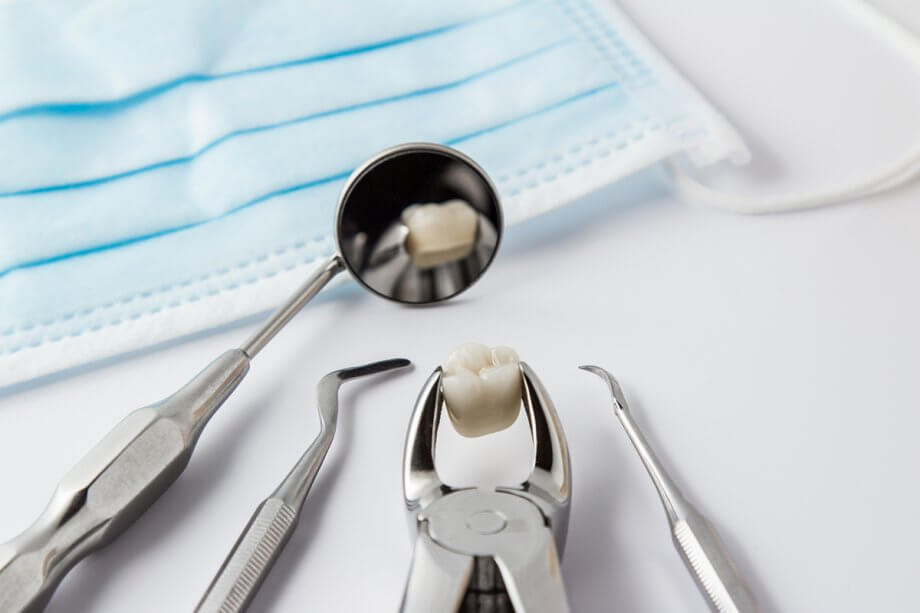Roughly 5 million people have wisdom teeth extracted each year. The wisdom teeth, which are also known as your third molars, are the last adult teeth to erupt. They typically appear between the ages of 17-25. But why do wisdom teeth need to be extracted? Read on for everything to know about having wisdom teeth removed, including suggestions for what you should eat after you’ve had them extracted.
Why Do Wisdom Teeth Need to Be Extracted?
The reason 85-90% of people need to have wisdom teeth extracted is that they will have one of several problems. Many people need wisdom teeth extracted because they do not have room in their mouths to accommodate these molars. Others need their wisdom teeth extracted because they will ruin previous orthodontic treatment. Other people need to have their wisdom teeth extracted because they are impacted, and causing pain.
An impacted wisdom tooth is a tooth that cannot fully emerge because there is not enough room for it to erupt normally. It then becomes partly or completely trapped in your gums or jawbone. Impacted wisdom teeth need to be removed because they can cause pain, infection, gum disease, and cavities.
Symptoms of Impacted Wisdom Teeth
Wisdom teeth that are fully impacted are not visible, because they are stuck under the gum. Impacted teeth may have broken through the jaw, but stuck under the gum (soft tissue impaction). They may also be completely under your gums and your jawbone (hard tissue impaction). In either case, most people will experience symptoms of impacted wisdom teeth such as:
- Difficulty fully opening your mouth
- Pain, pressure, or tenderness in the back of your jaw
- Bad taste in your mouth
- Redness, swelling, or bleeding gums
- Swelling in your face or jaw
- Facial and jaw pain
- Bad breath
- Headaches
Wisdom Teeth Removal: What to Expect
90% of people have at least one impacted wisdom tooth, which means that they’ll need oral surgery. The type of oral surgery you will need will depend on the severity of the impaction. Teeth that are impacted under the jawbone are deemed the most complex type of surgery, and you will need general anesthesia for the procedure. If your wisdom teeth have partially erupted, or through the jawbone but beneath the gum, local anesthesia may be all that is required.
During the extraction, your oral surgeon will make an incision to access the teeth. If you are sedated with local anesthesia or sedation anesthesia, you may feel a bit of pressure. If you’re given general anesthesia, you won’t feel anything, as you’ll be asleep during the entire procedure.
Once the teeth have been removed, the extraction sites will then be sutured, and your mouth will be packed with gauze. You will be given post-surgical instructions. You may also be given prescription mouthwash, antibiotics, or other medication to prevent infection. You will be advised to avoid using a straw, smoking, vaping, or using any other form of tobacco.
Wisdom Teeth Removal: What to Eat
For several days after your oral surgery to remove wisdom teeth, you’ll need to be very careful about what you eat. For the first few days, you will need to drink plenty of liquids and eat only very soft food. You should avoid all spicy, acidic, spicy, hard, and chewy foods after your surgery. You should also avoid very hot foods and beverages. I
Foods that you can eat after having your wisdom teeth removed include:
- Yogurt
- Applesauce
- Soup (cooled)
- Mashed potatoes
- Scrambled eggs
- Jello
- Smoothies
- Milkshakes
- Ice cream (no nuts, or candy)
- Broths
- Baby food (pureed food)
- Pudding
- Cottage Cheese
Some patients may be sensitive to extremely cold foods, in addition to hot foods. If cold foods such as ice cream, milkshakes, or smoothies bother you, select something else to eat. The sensitivity should resolve within a few days.
Schedule Wisdom Teeth Extraction in Burlington or Cambridge
Massachusetts Oral & Facial Surgery Centers provide wisdom tooth extraction in Cambridge and Burlington. To schedule an appointment with one of our experienced oral surgeons, contact us today.

